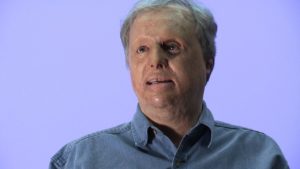by William J. Winslade, PhD, JD
Dax Cowart, patients’ rights advocate and lawyer, died of cancer on April 28, 2019. He was 71. He was widely known for his attempts to refuse treatment for severe burns caused by a propane gas explosion and fire that occurred in East Texas in 1973. Physicians in Dallas and Galveston disregarded his pleas on the grounds that he was incompetent. But Dax argued passionately that he had a right to decide whether or not to undergo the extremely painful burn treatments. The 1974 documentary Please Let Me Die showed that Dax, even though heavily medicated, could make a calm and rational argument for respect for his personal autonomy and his right to make his own treatment decisions.

Dax did recover from the burns but suffered extreme bodily harm from the burns and endured excruciating pain, not only from the burns, but also from the burn treatments. For nearly ten years he was depressed. But later the 1984 documentary Dax’s Case once again showed that Dax strongly disagreed with medical paternalism and advocated for the personal autonomy of competent adults to make their own medical decisions.
Dax eventually earned a law degree from Texas Tech University in 1986. He spent many years giving lectures and engaging in discussions at universities and elsewhere making a calm, rational and persuasive case for individual freedom to make personal medical decisions. For instance, the 1999 20/20 segment Dax’s Story presents Dax as an attorney who vigorously advocates for individual rights. Finally, the 2013 video Dax Cowart: 40 Years Later shows Dax reflecting on his life and how he consistently maintained his views toward patient autonomy for several decades.
I first met Dax in the early 1980s when I was a faculty member at UCLA. I later invited him to speak at UTMB when I became a faculty member at the Institute for the Medical Humanities. I discovered in Dax a remarkable ability not only to communicate his own ideas but also an extraordinary ability to listen and truly hear with almost therapeutic empathy the ideas and feelings of others. Whether he was talking with friends, family, lawyers, clients, or any person, Dax could create an intimate personal relationship. I experienced this myself in the many public and private talks we shared together. When Dax talked with another person he always listened closely and shared ideas and feelings that enhanced reciprocity, whether talking in public or private about the law or life. In my last in-person conversation with Dax at his home not long before he died, Dax and I had an uninterrupted five hour dialogue about many personal and professional topics of mutual interest. We were surrounded by his dogs who were a silent audience. Even as his health was failing, Dax’s humane wisdom and illuminating insights filled the room.
The many people who knew Dax and heard him speak to various academic, medical and public audiences will remember Dax as an articulate and persuasive advocate, not only for personal freedom, but also freedom from unnecessary and avoidable pain and suffering. His clear and calm voice will continue to remind us of respect for persons and for their liberty to choose for themselves.